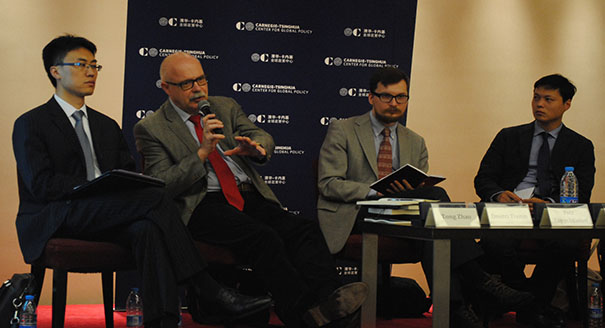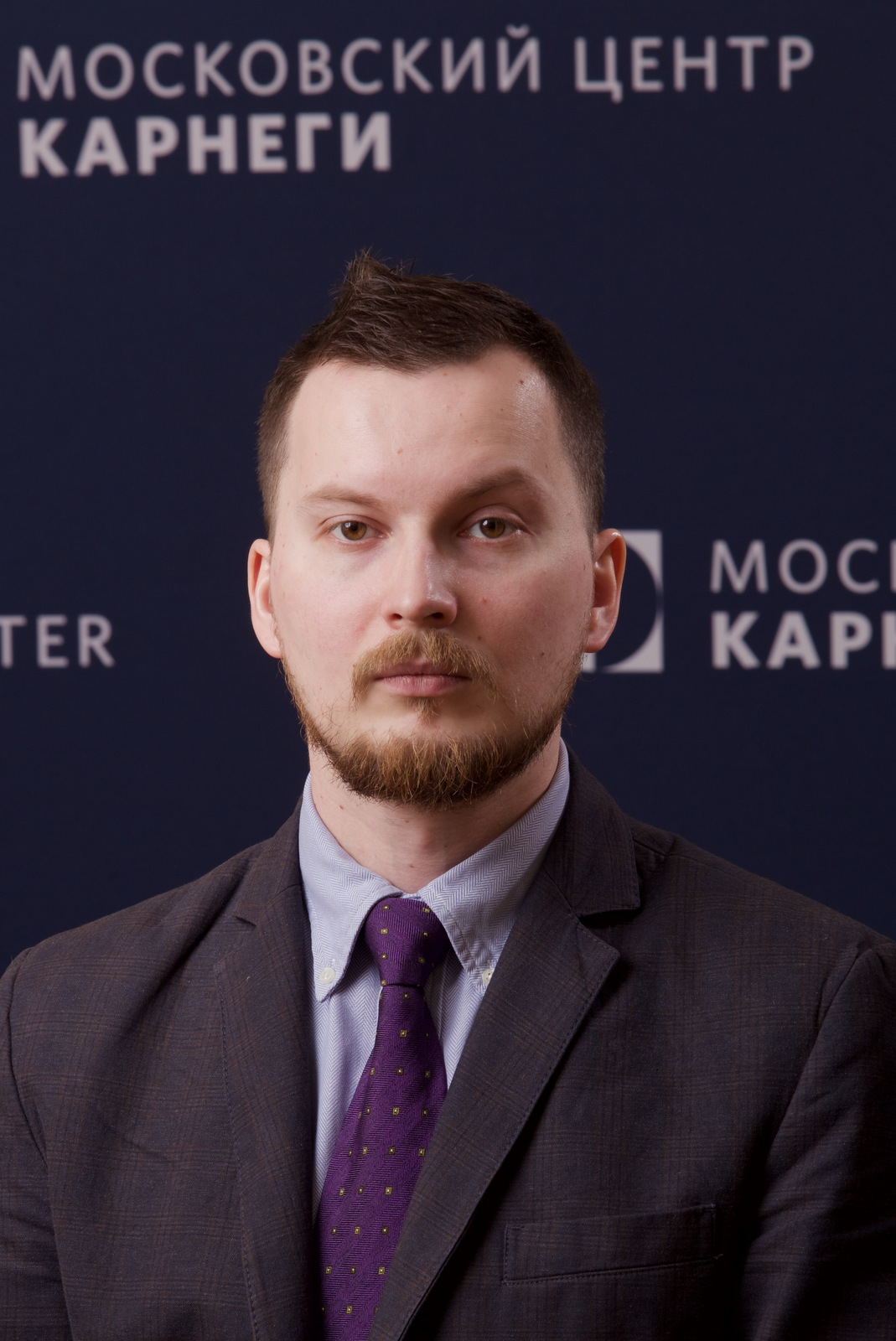{
"authors": [
"Tong Zhao",
"Dmitri Trenin",
"Petr Topychkanov"
],
"type": "event",
"centerAffiliationAll": "",
"centers": [
"Carnegie Endowment for International Peace",
"Carnegie China"
],
"collections": [
"China’s Foreign Relations"
],
"englishNewsletterAll": "",
"nonEnglishNewsletterAll": "",
"primaryCenter": "Carnegie China",
"programAffiliation": "",
"programs": [],
"projects": [],
"regions": [
"North America",
"Russia"
],
"topics": [
"Security",
"Nuclear Policy",
"Arms Control"
]
}
Russia’s Nuclear Posture and Relations With the West
Tue, May 26th, 2015
Beijing
Since the Ukraine crisis began in 2014, strained relations between the United States and Russia have limited the prospects of bilateral cooperation. In particular, joint efforts on nuclear arms control remain stalled and the possibility that Washington and Moscow will adopt more assertive conventional and nuclear security postures may have far-reaching consequences for global security from Europe to East Asia.
Carnegie–Tsinghua’s Tong Zhao hosted a discussion with Carnegie Moscow’s Dmitri Trenin and Petr Topychkanov. Trenin discussed how relations between Russia and the West affect diplomatic ties between Russia and China. Topychkanov presented his perspective on the possibility that Russia may consider giving nuclear weapons a more prominent role in its defense policy and how such a shift would influence relations between Russia, China, and the United States.
Discussion Highlights
- Contrasting Perceptions: Panelists agreed that Russia-U.S. tensions are quite high, but they maintained that this does not indicate the start of a new Cold War, because current disagreements are not as ideologically driven or comprehensive as during the Cold War. Still, participants asserted that deep differences remain between the two sides. They said that the United States views itself as a unipolar superpower with a wide range of priorities around the world. By contrast, Russia views itself as an equal partner with the United States and has kept Washington near the top of its foreign policy agenda.
- A Changing Global Order: The failure to integrate Russia into the transatlantic security alliance is at the root of the crisis in Ukraine, panelists asserted. They cited the lack of common ground between the parties involved as evidence that a timely resolution appears unlikely and that Ukraine will remain a long-term point of contention. In light of its uneasy relations with EU member, Russia is orienting itself toward potential partners elsewhere in the world, panelists explained.
- Russia’s Pivot to Asia: Panelists noted Russia’s shifting foreign policy focus from Europe to Asia. Key initiatives such as the One Belt, One Road initiative are expanding common interests between Eastern Europe and Central and East Asia. Participants predicted an ongoing constructive partnership in areas of infrastructure, finance, and energy between China and Russia. They noted while this may not lead to a formal alliance, such a dynamic could act as a stabilizing force for regional diplomatic relations.
- Nuclear and Missile Defense Challenges: Panelists noted Russia’s continued commitment to upholding nuclear arms control agreements and to minimizing its own nuclear arsenal. Yet Russia is also determined to keep a credible nuclear deterrence capability to preserve strategic stability, while also discouraging the United States from expanding the scope of its missile defense systems in Europe.
- Fostering Constructive Dialogues: Panelists noted that Beijing, Moscow, and Washington all remain committed to maintaining peace. To do so, all sides must exercise restraint and caution, especially during periods of heightened tensions. Participants suggested that keeping open channels of communication and holding transparent dialogues about security challenges will continue to remain an important means of building mutual trust.
Dmitri Trenin
Dmitri Trenin, director of the Carnegie Moscow Center, has been with the center since its inception. He also chairs the research council and the Foreign and Security Policy Program.
Petr Topychkanov
Petr Topychkanov is an associate in the Carnegie Moscow Center’s nonproliferation program. His research focuses on security in Russia and South Asia, including nuclear arms control, regional stability, and defense policy.
Tong Zhao
Tong Zhao is an associate in Carnegie’s Nuclear Policy Program based at the Carnegie–Tsinghua Center for Global Policy. His research focuses on strategic security issues, including nuclear arms control, missile defense, strategic stability, and China’s security and foreign policy.
Carnegie does not take institutional positions on public policy issues; the views represented herein are those of the author(s) and do not necessarily reflect the views of Carnegie, its staff, or its trustees.
Event Speakers
Tong Zhao is a senior fellow with the Nuclear Policy Program and Carnegie China, Carnegie’s East Asia-based research center on contemporary China. Formerly based in Beijing, he now conducts research in Washington on strategic security issues.
Dmitri Trenin
Former Director, Carnegie Moscow Center
Trenin was director of the Carnegie Moscow Center from 2008 to early 2022.

